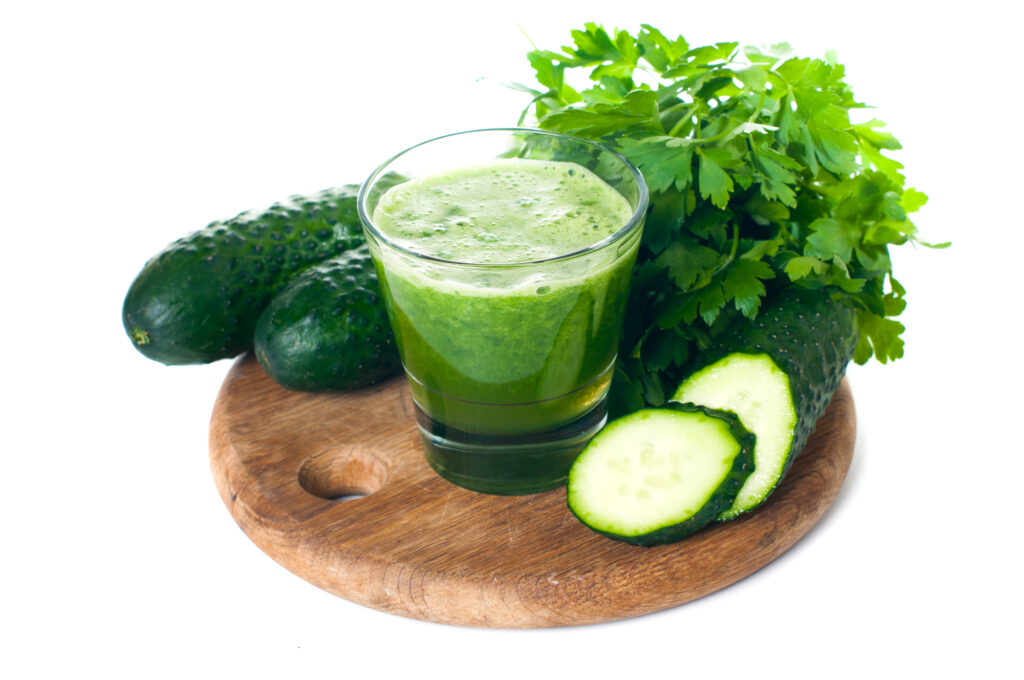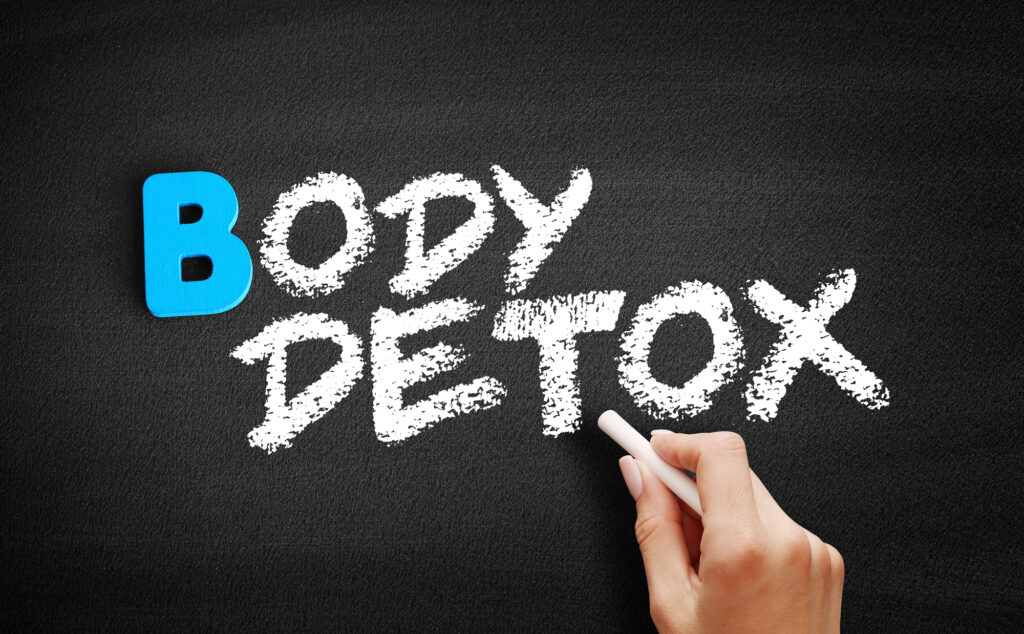 The benefits of fasting has long been regarded as an effective way to reboot your body’s natural processes and boost overall well-being. By voluntarily abstaining from food for a specific period, you promote detoxification, rejuvenation, cleansing and enable your body to restore itself. Fasting comes in various forms – from short-term intermittent fasting to longer, more intensive fasting periods – allowing individuals to choose the method that best suits their lifestyle and health goals.
The benefits of fasting has long been regarded as an effective way to reboot your body’s natural processes and boost overall well-being. By voluntarily abstaining from food for a specific period, you promote detoxification, rejuvenation, cleansing and enable your body to restore itself. Fasting comes in various forms – from short-term intermittent fasting to longer, more intensive fasting periods – allowing individuals to choose the method that best suits their lifestyle and health goals.
Key Takeaways
- Fasting promotes detoxification and rejuvenation by allowing your body to restore itself during periods of food abstinence
- Different types of fasting offer various benefits, so choose the method that suits your lifestyle and health goals
- Ensure safety and sustainability during fasting by following proper nutrition guidelines and consulting healthcare professionals
Understanding Fasting and Its Types

Fasting is a practice that has been around for centuries and is known for its myriad benefits, including body rejuvenation and cleansing. In this section, we will explore three popular types of fasting: Intermittent Fasting, Water Fasting, and Juice Fasting.
Intermittent Fasting
Intermittent fasting (IF) is a popular method of fasting that involves alternating between periods of eating and not eating. This type of fasting focuses on when you eat rather than what you eat. There are various approaches to IF, which can be based on different time frames. Some common methods include:
- The 16/8 method: You fast for 16 hours daily and eat within an 8-hour window. For example, you can choose to eat between 12 PM to 8 PM and then fast until noon the next day.
- The 5:2 method: You consume a normal diet for 5 days a week and then restrict your calorie intake to 500-600 calories for the remaining 2 days.
- The Eat-Stop-Eat method: You fast for a complete 24 hours once or twice a week.
Water Fasting
Water fasting is another type of fasting, where you consume only water for a specific period of time, usually between 24 to 72 hours. This method is more extreme than intermittent fasting and should be approached with caution, especially for beginners. It is essential to stay well-hydrated during this fasting period, as your body uses water for its energy and cleansing processes.
Juice Fasting
Lastly, juice fasting is a type of fasting in which you consume only fruit and vegetable juices for a set period, typically lasting anywhere from a few days to several weeks. While on a juice fast, you can benefit from the vitamins, minerals, and antioxidants present in the juices, which can help in detoxifying and rejuvenating your body. However, it’s crucial to be mindful of your sugar intake, as some fruit juices can be high in sugar content.
In conclusion, fasting can be an effective way to rejuvenate and cleanse your body when performed responsibly. Remember to listen to your body, consult with a medical professional if needed, and choose the fasting method that best suits your lifestyle and goals.
Physical and Mental Health Benefits

Cleansing Toxins and Liver Health
One of the main roles of the liver is to process and eliminate toxins from your body. During a fast, your body has a chance to redirect its energy and resources towards breaking down and detoxifying these harmful substances. Research suggests that fasting can help your liver remove various toxins and improve its overall health. For example, a study found that fasting could reduce liver fat by 20-80% in as little as three weeks.
Weight Loss and Metabolism
Fasting can be an effective way to lose weight since it helps your body to switch from burning glucose to burning fat stored in your body. During a fast, your body will first utilize glycogen stored in the liver for energy. Once these stores are depleted, it starts to break down and metabolize fat cells, leading to weight loss. Additionally, fasting has been shown to increase your metabolic rate, helping you burn more calories even when you’re not fasting.
Improved Insulin Sensitivity
Fasting can have a positive impact on your blood sugar levels. By giving your body a break from constant food consumption, you’re allowing it to better regulate insulin production and sensitivity. This improved insulin sensitivity can result in lower blood sugar levels and a reduced risk of developing type 2 diabetes. Moreover, fasting may also help reduce inflammation which can be a major factor in the development of chronic conditions like heart disease.
Remember to consult a healthcare professional before attempting any fasting regimen to ensure it is safe and appropriate for your individual health needs.
Dietary Guidelines and Nutrition for Health and Wellness
What to Eat and Avoid When You Use Fasting
While fasting, it’s crucial to maintain a nutritious diet to support your body’s rejuvenation and cleansing process. When breaking the fast, emphasize consuming whole foods and minimize processed foods. The foundation of your diet should include vegetables, fruits, whole grains, and protein sources like beans, nuts, seeds, and lean meats.
Incorporate a variety of colorful vegetables in your diet for optimal nutrient intake. Some great examples are:
- Leafy greens: kale, spinach, collard greens
- Cruciferous vegetables: broccoli, cauliflower, Brussels sprouts
- Root vegetables: beets, carrots, sweet potatoes
Avoid foods high in added sugar and unhealthy fats. Steer clear of sugary drinks, candy, and baked goods, opting instead for natural sweeteners like stevia, or fruits to satisfy your sweet tooth. Limit fried foods and packaged items, which often contain unhealthy trans fats and preservatives.
Hydration and Liquid Intake for Nourishment
Proper hydration is essential for overall health and plays a critical role in fasting and cleansing. Make sure to drink plenty of water throughout the day. The amount of water may vary depending on your body size, activity level, and climate. You can gauge your hydration by monitoring the color of your urine – pale yellow indicates optimal hydration.
In addition to water, herbal teas and homemade vegetable or fruit juices can support hydration and provide additional nutrients. When making juices, focus on nutrient-dense, low-sugar fruits and vegetables like cucumber, celery, and berries. These can help keep your sugar intake in check while still providing valuable vitamins, minerals, and antioxidants.
While fasting, avoid alcohol, caffeinated beverages, and sweetened drinks, as they can negatively impact your body’s cleansing process. Instead, opt for herbal teas and water infused with lemon, cucumber, or mint to keep your system refreshed and well-hydrated.
Practical Tips for Successful Fasting and Cleansing your Body
Preparing for a Fasting Program
Before starting a fasting program, it’s essential to prepare your body and mind. Be sure to consult with your doctor to determine which fasting method is suitable for you and get additional expert advice to maximize your results.
- Rest: Ensure you get enough sleep and rest during your fasting program. Good quality sleep aids in rejuvenation and supports your body while it cleanses itself.
- Lifestyle changes: Aim to reduce stress and achieve mental clarity by incorporating meditation or relaxation techniques into your daily routine.
- Exercise: Engage in light physical activity, such as walking or yoga, to complement your fasting program. Too much strenuous exercise may be counterproductive during fasting.
- Sleep: Prioritize consistent and quality sleep throughout your fasting program to support overall health and well-being.
A key aspect of a successful fasting program is establishing a schedule to maintain disciplined fasting periods. By organizing fasting and eating windows into your daily routine, you are more likely to adhere to your fasting program. Keep in mind that different fasting methods, such as intermittent fasting or prolonged fasting, will require unique scheduling.
While detox diets might seem attractive, fasting is a more natural way to cleanse and rejuvenate the body. By not consuming food, you allow your body to focus on removing waste and repairing itself. Drinking enough water and staying well-hydrated is crucial during fasting to support your body throughout this process.
In conclusion, focus on rest, exercise, stress reduction, sleep, and proper scheduling to optimize your fasting program’s success. Remember to consult your doctor before starting any fasting program and maintain discipline throughout to achieve the desired results.
Conclusion
Incorporating fasting into your routine can offer numerous benefits to your body in terms of rejuvenation and cleansing. Through this process, your body can effectively detoxify and repair itself, leading to better overall health and wellness.
It is important to remember that different fasting approaches suit different individuals; hence you should always listen to your body and select a method that best aligns with your needs and lifestyle. You can choose from various fasting techniques such as alternate-day fasting, time-restricted feeding, or prolonged fasting.
Fasting allows your body to focus its energy on repair and rejuvenation without the constant task of digesting food. Research has shown that fasting can lead to improved glucose metabolism, increased autophagy (cellular waste removal), and even stimulation of bone marrow stem cell formation – all of which contribute to a healthier, more youthful body.
Taking a break from food also promotes mental clarity and can help develop a more mindful relationship with food. It is essential to practice patience and stay committed throughout your fasting journey. Remember to prioritize adequate hydration and be aware of the signals your body sends.
In closing, fasting can be a valuable addition to your health regimen, offering body rejuvenation and cleansing benefits. Be sure to consult with a healthcare professional before embarking on any fasting program, and always prioritize your body’s needs above all else.
Frequently Asked Questions
What are the benefits of fasting for body rejuvenation and cleansing?
Fasting offers many benefits for both body rejuvenation and cleansing. It promotes autophagy, a natural process that helps your body remove damaged cells and regenerate new, healthy cells. Fasting also aids in weight loss, improves digestion, reduces inflammation, strengthens the immune system, and enhances cognitive function.
How long should one fast to effectively detox and reset the body?
The length of a fast varies depending on your personal goals and preferences. To effectively detox and reset the body, it can range from a 12-hour daily fast to a more extended cleanse that lasts several days or weeks. It is essential to listen to your body and consult a healthcare professional before undertaking any fasting regime, especially if you have pre-existing medical conditions.
What are the various types of fasts that can be undertaken for body cleansing?
There are several types of fasts that you can undertake for body cleansing. Some popular methods include intermittent fasting, water fasting, juice fasting, and Ayurvedic fasting. Each method has its own benefits and requirements, so you should choose the one that best aligns with your needs and lifestyle.
How can one safely incorporate a detoxifying fasting cleanse into their routine?
To safely incorporate a detoxifying fasting cleanse into your routine, consider these tips:
- Start slow and gradually increase the duration and frequency of your fasts.
- Stay well-hydrated during your fasts by drinking plenty of water.
- Break your fast gently with easily digestible foods, such as fruit or soup.
- Listen to your body and stop fasting if you experience severe symptoms or discomfort.
- Consult a healthcare professional before undertaking any fasting regime, particularly if you have pre-existing medical conditions.
- Include proper sleep duration and quality to support your body’s rejuvenation and recovery during the fast.
Is it possible to repair and rejuvenate your body through fasting, and how does it work?
Yes, it is possible to repair and rejuvenate your body through fasting. Fasting stimulates autophagy, a natural process that helps your body eliminate damaged cells and promote the growth of new, healthy cells. This cellular renewal is essential for maintaining good health, preventing diseases, slowing down the aging process, and supporting overall body rejuvenation.

